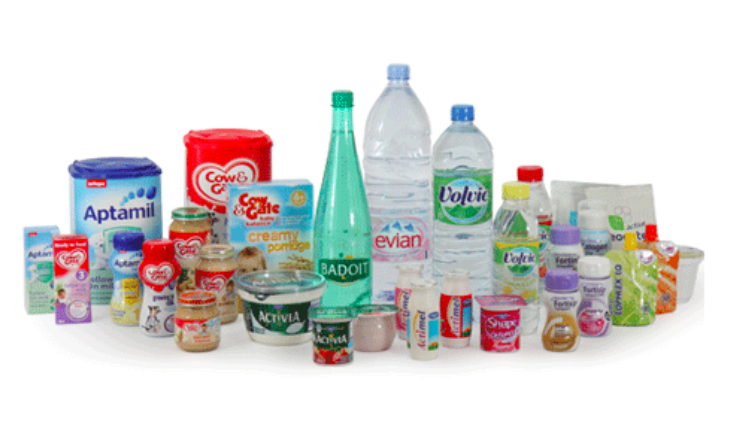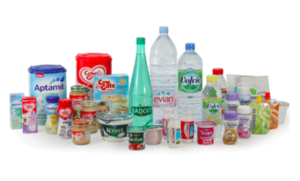Plastic is a big problem. World plastic production totaled 359 million tons in 2018, and production levels have grown steadily since 1950. It is estimated that 3-4% of plastic enters the ocean eventually creating ocean garbage patches such as the infamous Great Pacific Garbage Patch, which is now twice the size of Texas. And as much as recycling is helpful, a whopping 91% of plastic isn’t recycled.
While many of us believe we’re playing our part by recycling, we fail to look at what happens after we carefully sort our papers and plastics in blue bins: They enter a massive $300bn global waste management market. This industry, which supplements the export of waste to foreign countries, isn’t always as effective as one would imagine. Developing countries, oceans and landfills often turn into victims in the disposal cycle — and eventually become dumping grounds for an enormous amount of plastic.
As per the National Geographic, it is becoming necessary to “rethink plastic chemistry, product design, recycling strategies, and consumer use.” The Sutardja Center for Entrepreneurship and Technology’s “Deplastifying the Planet” Spring 2020 Challenge Lab aims to give students the chance to do something about this crisis by working alongside corporate partners to explore sustainable solutions — such as optimization, replacement, reduction and recycling of plastic use.
Confirmed industry partners for Spring 2020 include Danone and Faurecia. Students in the course will be assigned to an open innovation challenge posed by a corporation, and will learn ethnographic interviewing, design thinking, ideation tools, prototyping, idea validation, and business modeling.

Are you interested in brainstorming novel ways to replace mainstream use of plastic bottles? Danone, a French €25 billion multinational food corporation will challenge student teams to replace plastic bottles. The company — which owns popular water brands like Evian and Volvic — aims for every piece of packaging they distribute to be reusable, recyclable or compostable by 2025. Additionally, they’re working towards eliminating items that are unlikely to be recycled, and developing new alternative delivery or reuse models.
Faurecia is one of the largest international automotive parts manufacturers in the world, and the leader in vehicle interiors and emission control technology. The company’s challenge for Spring 2020 will build upon the project from last semester — Students will begin making products like the insulation of car doors out of ethically sourced natural fibers from Mexico, instead of plastic. The Faurecia team emerged winners of the last Deplastifying the Planet course, and is interested in master of engineering students and students interested in supply chain and process engineering as well as Spanish speakers. Students with knowledge or interests in cognitive science or consumer research would also be welcomed to help push the project towards user testing and prototyping.
Last semester, students in the course visited Recology SF, which is one of the largest recycling centers in the Western United States. The center processes roughly 40 tons of material an hour at its Pier 96 location. The team explained the challenges in sorting recycled materials to minimize contamination and diversion of material to landfills. Even after significant investment in technology, human sorters and pickers are still required during certain phases of the process — indicating a need for reducing the use of plastic.
While the course aims to accommodate student preferences in projects, the instructor reserves the right to allocate teams to permit a balanced distribution of skill sets. Undergraduate students interested in tackling the plastics situation through ethical innovation, corporate learning and sustainable design are encouraged to apply through this link, and graduate students through this link. Learn more about the course in this video.This course will count towards requirements for the Sutardja Center’s Certificate in Technology and Entrepreneurship.
Plastic is a big problem. World plastic production totaled 359 million tons in 2018, and production levels have grown steadily since 1950. It is estimated that 3-4% of plastic enters the ocean eventually creating ocean garbage patches such as the infamous Great Pacific Garbage Patch, which is now twice the size of Texas. And as much as recycling is helpful, a whopping 91% of plastic isn’t recycled.
While many of us believe we’re playing our part by recycling, we fail to look at what happens after we carefully sort our papers and plastics in blue bins: They enter a massive $300bn global waste management market. This industry, which supplements the export of waste to foreign countries, isn’t always as effective as one would imagine. Developing countries, oceans and landfills often turn into victims in the disposal cycle — and eventually become dumping grounds for an enormous amount of plastic.
As per the National Geographic, it is becoming necessary to “rethink plastic chemistry, product design, recycling strategies, and consumer use.” The Sutardja Center for Entrepreneurship and Technology’s “Deplastifying the Planet” Spring 2020 Challenge Lab aims to give students the chance to do something about this crisis by working alongside corporate partners to explore sustainable solutions — such as optimization, replacement, reduction and recycling of plastic use.
Confirmed industry partners for Spring 2020 include Danone and Faurecia. Students in the course will be assigned to an open innovation challenge posed by a corporation, and will learn ethnographic interviewing, design thinking, ideation tools, prototyping, idea validation, and business modeling.

Are you interested in brainstorming novel ways to replace mainstream use of plastic bottles? Danone, a French €25 billion multinational food corporation will challenge student teams to replace plastic bottles. The company — which owns popular water brands like Evian and Volvic — aims for every piece of packaging they distribute to be reusable, recyclable or compostable by 2025. Additionally, they’re working towards eliminating items that are unlikely to be recycled, and developing new alternative delivery or reuse models.
Faurecia is one of the largest international automotive parts manufacturers in the world, and the leader in vehicle interiors and emission control technology. The company’s challenge for Spring 2020 will build upon the project from last semester — Students will begin making products like the insulation of car doors out of ethically sourced natural fibers from Mexico, instead of plastic. The Faurecia team emerged winners of the last Deplastifying the Planet course, and is interested in master of engineering students and students interested in supply chain and process engineering as well as Spanish speakers. Students with knowledge or interests in cognitive science or consumer research would also be welcomed to help push the project towards user testing and prototyping.
Last semester, students in the course visited Recology SF, which is one of the largest recycling centers in the Western United States. The center processes roughly 40 tons of material an hour at its Pier 96 location. The team explained the challenges in sorting recycled materials to minimize contamination and diversion of material to landfills. Even after significant investment in technology, human sorters and pickers are still required during certain phases of the process — indicating a need for reducing the use of plastic.
While the course aims to accommodate student preferences in projects, the instructor reserves the right to allocate teams to permit a balanced distribution of skill sets. Undergraduate students interested in tackling the plastics situation through ethical innovation, corporate learning and sustainable design are encouraged to apply through this link, and graduate students through this link. Learn more about the course in this video.This course will count towards requirements for the Sutardja Center’s Certificate in Technology and Entrepreneurship.

